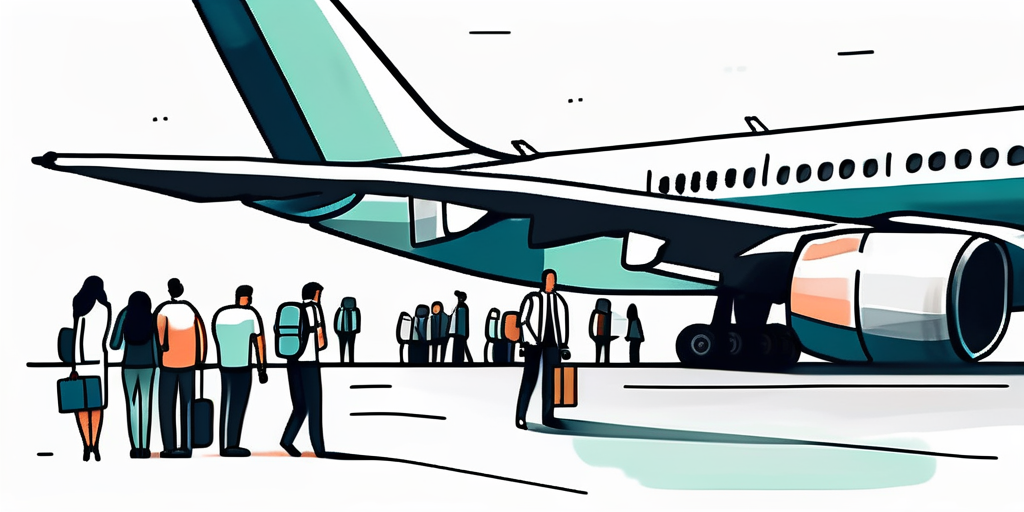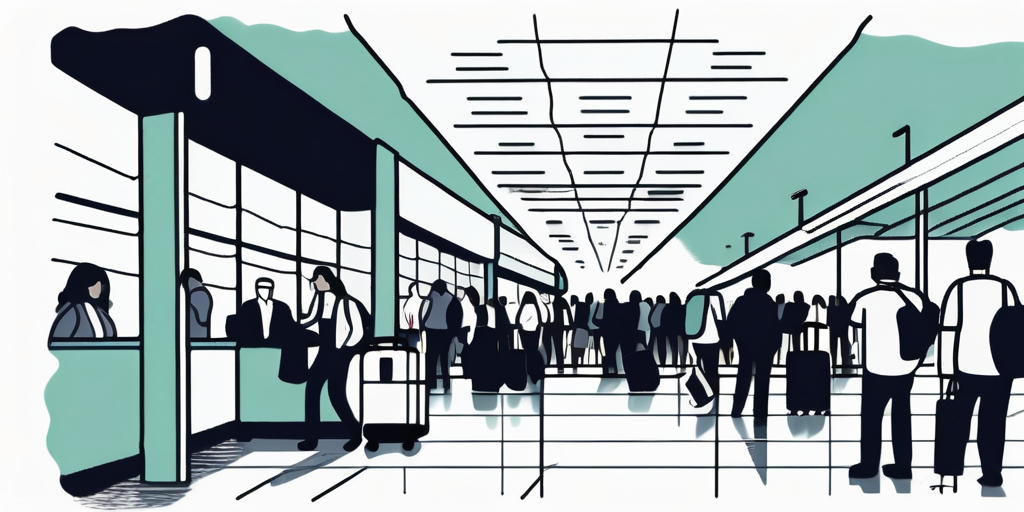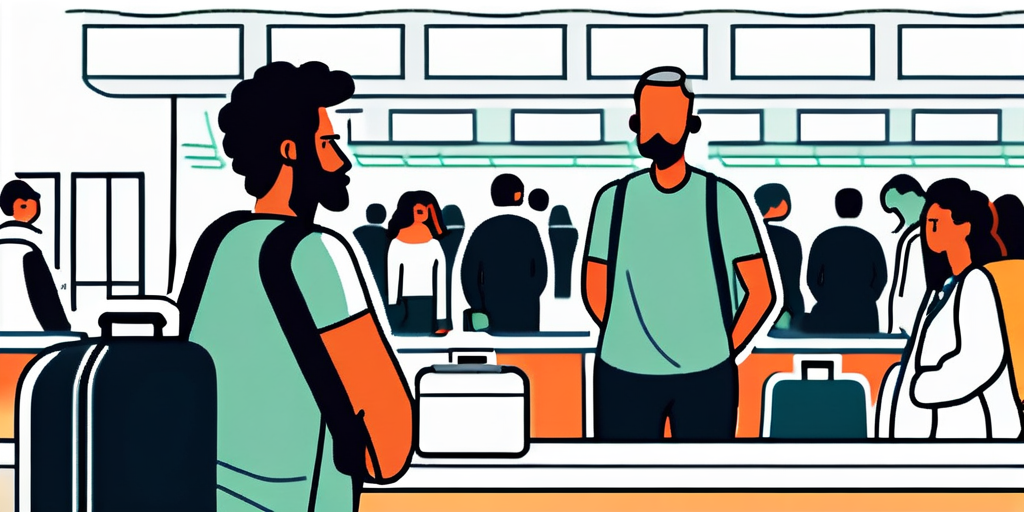Airline Overbooking Laws: What You Need to Know
Understand the complexities of airline overbooking laws. Gain insights into regulations and how they affect passenger rights.
The concept of airline overbooking is a practice that has become increasingly common in recent years. Airlines often sell more tickets for a flight than there are available seats in order to maximize their revenue. While this may seem like a simple and straightforward strategy, it can have significant implications for both passengers and airlines.
The Concept of Airline Overbooking
Airline overbooking refers to the situation where more tickets are sold for a specific flight than the actual number of seats available on the plane. This means that some passengers may be unable to board the flight even though they have a ticket. Airlines do this to compensate for the fact that not all passengers show up for their scheduled flights. It is based on statistical probability that a certain percentage of passengers will cancel or not show up, allowing the airline to fill those vacant seats with other passengers.
Why Do Airlines Overbook?
There are several reasons why airlines choose to overbook their flights. The primary reason is to maximize their revenue. By selling more tickets than there are seats available, airlines can ensure that their planes are at full capacity, thus increasing their profits. Additionally, airlines need to account for the fact that some passengers may not show up for their flights, resulting in empty seats. Overbooking allows airlines to fill those seats, avoiding any potential losses.
The Economics Behind Overbooking
The economic rationale behind overbooking is rooted in the fact that airlines operate on thin profit margins. By overbooking, airlines can hedge against the risk of empty seats, which would otherwise translate into lost revenue. This practice allows airlines to optimize their resources and minimize the impact of no-show passengers on their bottom line. However, it is important to strike a delicate balance between overbooking and ensuring that passengers' rights are protected.
Moreover, airlines employ sophisticated algorithms and statistical models to determine the optimal number of overbooked seats for each flight. These models take into account historical data, such as booking patterns and cancellation rates, as well as real-time information, such as the number of passengers who have checked in for the flight. By analyzing this data, airlines can make informed decisions on how many extra tickets to sell, ensuring that they maximize their revenue without inconveniencing too many passengers.
Furthermore, airlines have established procedures in place to handle situations where there are more passengers than available seats. They typically offer compensation, such as vouchers for future flights or hotel accommodations, to passengers who volunteer to take a later flight. In some cases, airlines may also involuntarily deny boarding to certain passengers, based on factors such as their check-in time or fare class. However, these situations are relatively rare and airlines strive to minimize the number of passengers affected by overbooking.
In conclusion, airline overbooking is a strategic practice employed by airlines to maximize their revenue and minimize the impact of no-show passengers. By carefully managing the number of overbooked seats and implementing compensation measures, airlines aim to strike a balance between profitability and customer satisfaction. While overbooking can sometimes lead to inconveniences for passengers, it remains an integral part of the airline industry's business model.
The Legalities of Airline Overbooking
While airline overbooking is a common practice, it is not without legal implications. Both international and domestic laws govern how airlines handle overbooking situations and protect the rights of passengers.
 When it comes to international laws on overbooking, there are several key agreements and conventions that play a significant role in regulating this practice. One of the most notable agreements is the Montreal Convention, which establishes rules for air carriers' liability in cases of passenger injury or death, including situations related to overbooking. This convention sets out the obligations of airlines to compensate passengers for damages incurred as a result of overbooking, ensuring a level of accountability and protection for travelers.
When it comes to international laws on overbooking, there are several key agreements and conventions that play a significant role in regulating this practice. One of the most notable agreements is the Montreal Convention, which establishes rules for air carriers' liability in cases of passenger injury or death, including situations related to overbooking. This convention sets out the obligations of airlines to compensate passengers for damages incurred as a result of overbooking, ensuring a level of accountability and protection for travelers.
International Laws on Overbooking
Internationally, overbooking is regulated by various agreements and conventions that aim to ensure fair treatment of passengers. These regulations outline the responsibilities of airlines in the event of overbooking, including the provision of compensation, alternative transportation, and other remedies to affected passengers.
Furthermore, the Warsaw Convention, another crucial international agreement, addresses the liability of air carriers in cases of overbooking and establishes a framework for resolving disputes between airlines and passengers. This convention serves as a cornerstone in the legal landscape surrounding overbooking, offering guidelines for both airlines and passengers to navigate such situations with clarity and fairness.
Domestic Laws on Overbooking
In addition to international laws, many countries have their own set of regulations that govern airline overbooking. These laws vary from country to country but generally aim to protect the rights of passengers and ensure that airlines adhere to certain standards in managing overbooking situations.
For example, in the United States, the Department of Transportation has specific rules in place to address overbooking by airlines. These regulations require airlines to seek volunteers to give up their seats before bumping passengers involuntarily, and they also mandate that passengers who are bumped involuntarily are entitled to compensation. By having these domestic laws in place, countries can provide a layer of protection and recourse for passengers affected by overbooking incidents, promoting a more transparent and accountable aviation industry.
Rights of Passengers in Overbooking Situations
Passengers who find themselves in an overbooking situation are entitled to certain rights and protections. These rights include compensation for denied boarding, rebooking options, and other remedies to mitigate the inconvenience caused by the overbooking.
 Overbooking occurs when an airline sells more tickets for a flight than there are available seats. While airlines overbook flights as a strategy to maximize their revenue and account for no-show passengers, it can lead to situations where there are not enough seats for all ticketed passengers. This can result in passengers being involuntarily bumped from their flights, causing frustration and disruption to their travel plans.
Overbooking occurs when an airline sells more tickets for a flight than there are available seats. While airlines overbook flights as a strategy to maximize their revenue and account for no-show passengers, it can lead to situations where there are not enough seats for all ticketed passengers. This can result in passengers being involuntarily bumped from their flights, causing frustration and disruption to their travel plans.
Compensation for Overbooked Flights
When a passenger is denied boarding due to overbooking, they are typically entitled to compensation. The amount of compensation varies depending on the specific circumstances and the jurisdiction in which the incident occurs. However, it is generally intended to compensate passengers for the inconvenience and disruption caused by being unable to board their intended flight.
In addition to compensation, some airlines may offer vouchers for future travel, upgrades to a higher class, or other amenities to appease passengers affected by overbooking. It is important for passengers to understand their rights and advocate for fair treatment in these situations.
Rebooking Policies and Procedures
In cases of overbooking, airlines are required to provide passengers with alternative options for reaching their destinations. These options can include rebooking on another flight, rerouting through different airports, or even providing transportation by other means. The specific policies and procedures for rebooking can vary between airlines, so it is essential for passengers to familiarize themselves with the options available to them.
Passengers should also be aware that in some cases, they may be able to negotiate for additional compensation or benefits if they are willing to volunteer to be bumped from an overbooked flight. This can include perks such as travel vouchers, hotel accommodations, or meal vouchers, depending on the airline's policies and the specific circumstances of the overbooking.
How to Handle Overbooking as a Passenger
If you find yourself facing an overbooking situation, it is important to know your rights and take appropriate actions to minimize the impact on your travel plans.

Steps to Take When You're Overbooked
First and foremost, remain calm and approach airline staff to understand the situation. Ask for clarification on the available options, such as the possibility of being rebooked on a later flight or receiving compensation. It is important to be polite, as dealing with overbooking situations can be stressful for both passengers and airline personnel.
Negotiating with Airlines in Overbooking Scenarios
In some cases, it may be possible to negotiate with the airline to reach a mutually satisfactory solution. This could include requesting additional compensation or alternative travel arrangements. Understanding your rights and being aware of the airline's obligations can strengthen your position during negotiations.
Preventing Overbooking Situations
While passengers may not have direct control over whether an airline chooses to overbook a flight, there are steps that can be taken to minimize the likelihood of being affected by overbooking.
Tips for Avoiding Overbooked Flights
One way to reduce the risk of being caught in an overbooking situation is to book your flights well in advance. Airlines are more likely to sell excess tickets in the final days leading up to a flight. Additionally, consider flying during off-peak times when the demand for seats is lower. By being proactive and strategic in your booking choices, you can increase the chances of securing a seat on your desired flight.
The Role of Travel Agents in Preventing Overbooking
Using a reputable travel agent can also help in preventing overbooking situations. Travel agents have access to real-time information about flight availability and can advise you on the best options to minimize the risk of encountering overbooked flights. They can also assist in rebooking and resolving any issues that may arise if you find yourself dealing with an overbooking situation.
In conclusion, understanding airline overbooking laws is crucial for passengers to know their rights and navigate any potential overbooking situations. By knowing what to expect and how to handle such situations, passengers can ensure their travel plans proceed as smoothly as possible. Airlines, too, must strike a balance between maximizing their revenue and upholding the rights of passengers in compliance with international and domestic laws.
Get the Compensation You Deserve with ClaimCompass
Encountered an overbooked flight or faced travel disruptions? ClaimCompass is here to help you claim up to 600€ in compensation for flight delays, cancellations, and overbookings. We specialize in air passenger rights in Europe and make the process hassle-free by handling your claim from start to finish. If the airline refuses to pay, we're prepared to take legal action on your behalf. Use our compensation calculator to check your eligibility for free and find out how much you could be owed. Remember, there's no cost to you unless we succeed, and our expertise ensures you get the compensation you're entitled to. Don't let airlines keep what's yours—submit a claim with ClaimCompass today.
